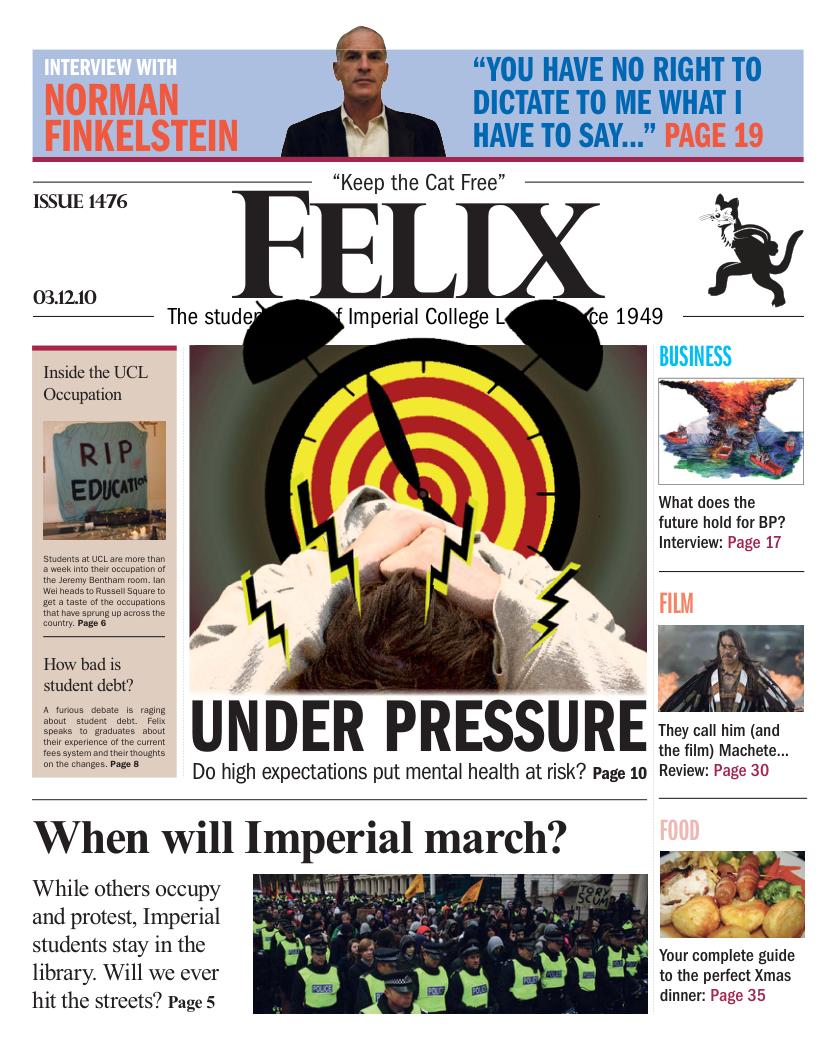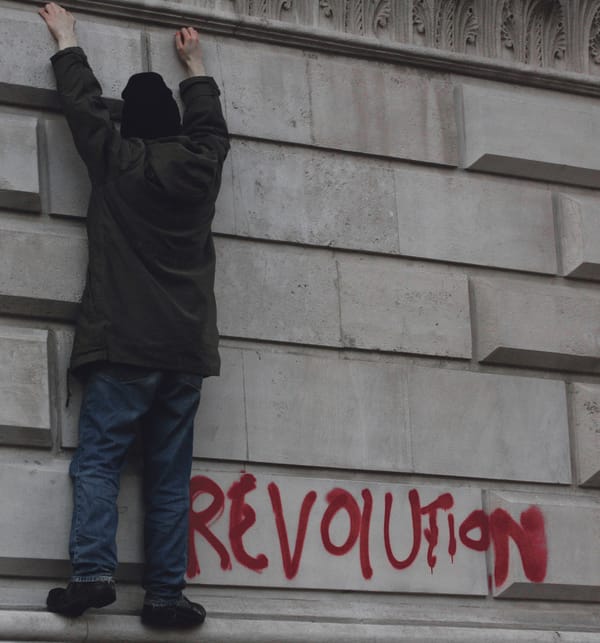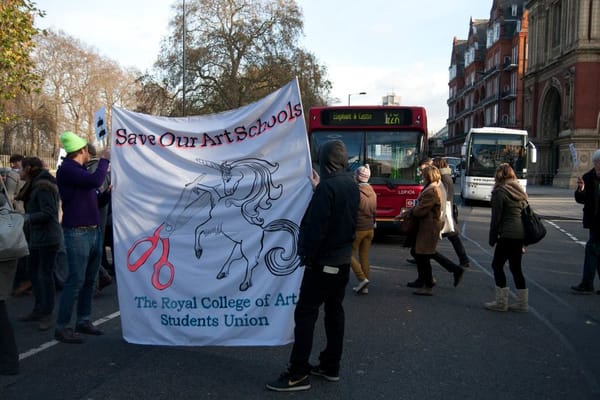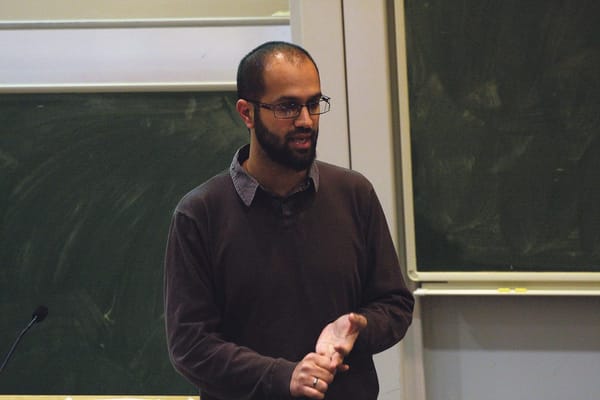When will Imperial march?
While students around the country have been taking direct action, Imperial has remained quiet. Maciej Matuszewski finds out why
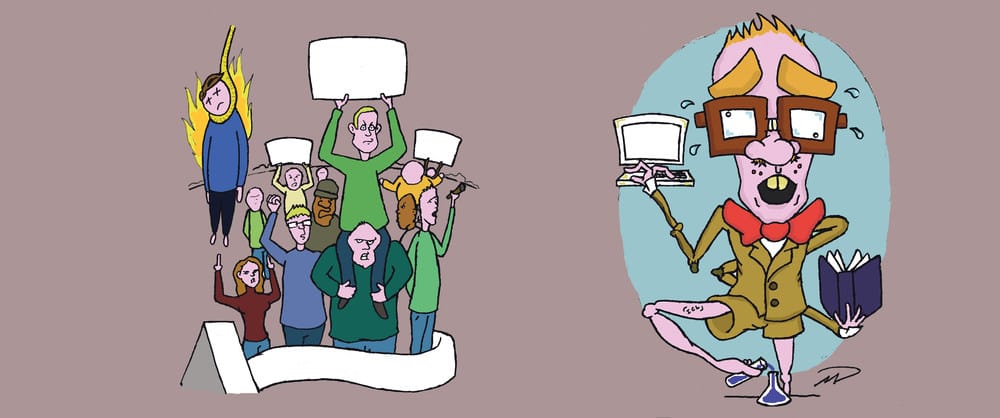
The government’s planned changes to university funding are anything but inconsequential. Protests and sit-ins have sprung up at universities around the country, but the anger does not seem to have reached Imperial in any significant way. Walking around campus, the only signs of opposition to these changes are a few discreet posters. Indeed, the Imperial Student Union’s Council recently voted to broadly support the Browne review, which proposes lifting the tuition fee cap for home students.
On the face of it, there does seem to be a widespread apathy concerning the government’s policy among many students. There are many possible reasons for this. Imperial has an exceptionally large proportion of international students: 34.5%, compared to 23.9% for UCL, whose student body is one of the most vocal about government policy. Most importantly, Imperial does not offer arts subjects, which will suffer the brunt of the government’s cuts; many will see an 80% cut in their funding while some will receive no funding at all. In addition, funding for science subjects is being protested. Simply put, Imperial students will not be affected as severely as those at other universities. They have little motivation for action, with many of the students interviewed reluctant to disrupt their tight schedule of lectures and labs to go and protest. Other students, while accepting that the funding changes will cause difficulties, grudgingly agree with them. Michael Lewis, a second year Chemical Engineering student, summarised this saying that though he believed in “no fees, with the country in its current state, the increases are necessary”.
There are, however, some signs of resistance. This Tuesday Imperial for Education organised a discussion on opposing the budget cuts and tuition fee increases, and led a small contingent of Imperial students to the protests in central London. Reuben Gibbons, who is heavily involved in this group, believes that the proposed 80% cut in government funding to higher education, will be detrimental to universities, which will be unable to recoup the losses by charging higher fees as these will discourage many applicants. He rejects Union President Alex Kendall’s views that the debt will not adversely affect students because the amount that they will have to pay back will be tied to their earnings. Gibbons points out that the debt will still be a real burden, especially with graduates paying it back for 30 years, without an option for earlier repayment, and with the interest rate being higher than what it is now. Caroline Clark, another member of Imperial for Education, believes that “it is inevitable that students from poorer backgrounds will be put off” and that the highest charging universities under the new system, which are almost certain to include Imperial, will only be “accessible to the privileged elite”. She believes that “the government should increase taxes on the rich and clamp down on tax avoidance” instead of raising fees. Union President Alex Kendall rejected their arguments saying that “the only way to ensure that students can still come to Imperial, and that Imperial has enough funding, is by raising fees but also ensuring that bursaries and the necessary support is there to ensure access for all.”
Gibbons believes that “people care the same here as elsewhere” about these issues but that they lack the support of the Union. This was corroborated by a number of students, with a group of first year undergraduates saying that they had no time to organise action against the cuts without the Union’s help. They were angry about its policy and thought that they had little chance to influence it. This highlighted the very poor communication between the Union and the students that it is meant to represent. None of the first years knew the dates of the Union Council meetings or how to contact Council members, despite one of them being a year rep himself. Deputy President (Education) Alex Dahinten rejected the criticisms saying “we promoted the Council debate extensively. Students had ample opportunity to voice their concerns if they strongly disagreed with the policy that we put forward.” He did however say that the Union plan to revisit and adjust the policy in January.
Imperial for Education is critical of how the Union’s means of determining students’ views about funding issues. According to Gibbons the student survey was limited, asking no questions about maintenance loans, and only including about 5% of students. Despite this, he believes that Council was premature to draw up its policy on funding before consulting its results, which seem to suggest that students prefer the current system. Only 5.3% of those surveyed, agreed to students leaving university owing more than £30,000, which are certain to exceed if Imperial raises its tuition fees to the predicted £9,000. Alex Dahinten conceded that he “had the wrong expectations about how many students would participate in the survey” and while not wishing to dismiss the results, said that they were unrepresentative of the student body as 54% of respondents were in their 1st year.
Almost all of the Council members who voted on the Union’s policy have refused to answer questions on their decision. Only 4 out of the 35 elected student representatives were willing to speak to Felix. Union Advocate Naida Dzigal rejected the policy saying that she supported free higher education. CGCU Academic Affairs Officer Marcus Ulmefors has decided to oppose a large increase in fees as he fears that they might discourage EU home students, a view supported by a number of current students. SCC Chair Rhodri Oliver, however, said that he still supported the motion while RCSU President Scott Heath argued for the need for a new opinion poll that covers more areas and has better designed questions. He is quite open to the Council changing its policy based on the results of this new survey and face-to-face consultation with students. Union President Alex Kendall conceded that there was a need to properly gauge student opinion as “the debate has really grown recently”. CGCU Academic Affairs Officer Marcus Ulmefors has decided to oppose a large increase in fees as he fears that they might discourage EU home students, a view supported by a number of current students. Even those council members who continue to support fee increases point out that the Council’s priority is to help students, with Recreational Clubs Committee Chair Nathaniel Bottrell stressing the Union’s commitment “to campaigning for scholarships and bursaries to enable the brightest students to come to Imperial regardless of their background”. Despite this there is no indication that the Union is going to support or organise the type of action seen at Universities such as Oxford and UCL. Alex Kendall told Felix that “students are welcome to protest but I think that [the Union’s] time is better spent working for our students. It may be dull but it does more to improve their university experience”.

